So You Want To Have "A Homestead"
It Actually Isn't Impossible. But I'm Not Sure You'd Like It.
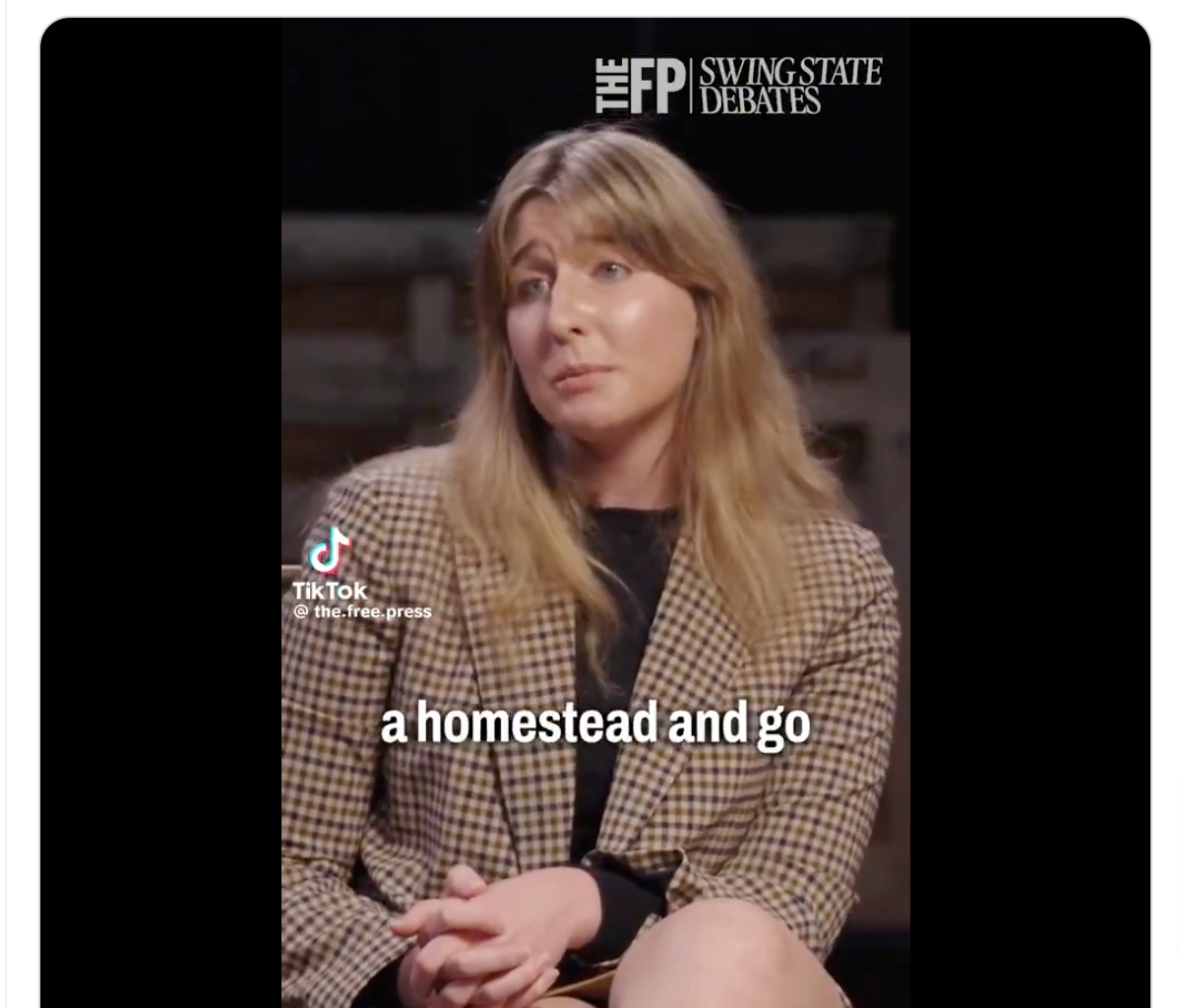
Remember this poor kid? Last fall The Free Press hosted a debate on political issues of interest to Gen Z men and women. The woman pictured above, Jacky Eubanks, caused a stir lamenting that she would actually prefer to homestead and have several children, but the American economy impedes her, forcing her to work in an office instead.
I’ve thought about poor Jacky Eubanks a bit since this happened, wondering if the economy really has changed such that what was possible for me to do fifteen years ago—buy land, learn to raise food and animals, have five children—is no longer accessible to women. Does the economy really force young women to forgo their homesteading dreams?
You know, one of the truly sad things about social media is the way it pushes genuine hobbies and interests into “lifestyles” or “cultures.” Young people look at life as if one can either be a modern woman OR one can join a weird subculture and reject everything that modern women do. That’s not really how life works. There isn’t a need to strike such a heavy line between the things women used to do, and what they mostly do now.
It’s possible you just don’t know how to do a lot of the things women used to do. But you could learn. You could learn while also wearing pants, even.
Plenty of modern women own land and keep animals. In fact, I would say more often than not, female homesteaders also work outside the home for part or all of their adult lives, just to be able to afford the lifestyle.
Most of my friends in our little Northern California rural community own land and raise either animals or farm produce. Nearly all of the competent female homesteaders are also working women. There are a few who homestead and raise children and do not earn money outside of the home, but it is a tiny minority.
Here’s the way life actually works: either you’re competent . . . or you’re not. The competent people kind of do everything, while the incompetent or still learning struggle to do much of anything. So often, the successful homesteader wife will also have a career and will also be head of the county fair board and will also be the main parent volunteer at school, etc. The coloring doesn’t stay in the lines because “trad wife” and “modern woman” are fake boundaries that mostly do not exist in reality.
Designing and running an entire ecosystem of productive animals, plants, children, housing, and a spouse requires an abundance of creativity. Most people don’t live a life like that, so you can’t simply observe and imitate. When imitation is not an option, you have to try things you don’t know how to do, fail, and try different things until something works. This is a very uncomfortable mode for most people, and most people struggle to like themselves and their lifestyle while they are still failing most of the time. Therefore, we tend to do things that we observe other people doing, and we imitate them and fake it until we gain competence.
Jacky Eubanks, and presumably many young women like her, wishes she could live on a homestead but unfortunately, the modern economy “makes” her work. Obviously that’s not literally true. What I suspect Jacky means is that our culture specifies a very narrow path to respectability, and that respectable path does not include homesteading.
Women creative enough to successfully run a farm and business while raising multiple children do not care about respectability because they are too busy creating. They are oddballs in that they willingly forgo what most people find admirable or respectable in order to pursue their creative compulsion.
I think life separates the creatives from the followers early on, and followers mostly stick to well-worn paths and acceptable avenues because they want to be considered a success. They are creative in their purchasing and in their leisure time, perhaps, but their actual working lives are more or less what everyone else is doing. There isn’t anything wrong with that, but listening to poor Jackie talk fills me with a suspicion that she thinks “the homestead” or “the life of many children and animals and plants” is something “the economy” should provide for young women. That’s not how this goes. The economy provides a lot of expected, usual paths for average people to achieve a modicum of success. But by its very nature, the economy doesn’t really provide unusual, artistic lifestyles to painfully average people who prioritize respectability.
Jacky could quit her office job tomorrow and take an unpaid internship on a farm offering free room and board in exchange for work and be well on her way to her dream. She could learn almost everything there is to know about her desired lifestyle working for someone else first, she could make a lot of friends and become quite skilled in any number of areas surrounding animal husbandry and agriculture, and she would probably easily find a husband interested in sharing that life with her.
This isn’t rocket science.
However—Jacky would undoubtedly lose status, and her friends and family might make fun of her, worry about her, thank God they aren’t her. . . pity her.
Jacky might also have to work really hard at whatever job brought her the most money per hour, and live well below her means for a long time, just to save up enough money to buy her land and animals.
I think when young people despair over the economy or the world “forcing” them to do something they find deeply unsatisfying, what they are actually angry about is their discovery that deeply satisfying things are often not popular, are not easy to obtain, and do not confer high status. It is similar to dreaming of becoming a surgeon—because surgeons make a lot of money and everyone respects people who make money—and then finding out that actually going to school for a decade and then performing surgeries every day is a very difficult and unsatisfying daily routine.
It is like the millions of people who think they want to become writers, when what they really want is to be thought of as writers by other people—admired as writers are admired. The writing part is actually very bland and tedious; not something most people enjoy.
My number one piece of advice for young women: think about what you actually like doing. Not what you’d like to be seen doing. What do you do when you have free time and you can’t scroll online or consume entertainment? Where does you mind go when it is both unoccupied and unentertained?
If you find yourself caring for rescue animals or growing plants in your apartment kitchen or balcony in your spare time, or if you find yourself taking on spontaneous home and garden projects, competing against others (and yourself) to build real, physical things that work well, or, if you spend your days navigating systems involving sunlight, water, soil, wood or metal, then yes, I’d say you should think about homesteading.
The successful future homesteader is someone who finds herself keeping track of things like average rainfall or first and last frost from year to year without even realizing she’s doing it. Or someone who knows which way the rainfall runs off the apartment roof, and how it is swept away from the structure and off into someplace where it can do less damage. Or someone naturally interested in efficient ways of heating, cooling, watering, moving, herding, and storing plants, animals, or feed. Homesteading is more engineering, science, and weather watching than anything else.
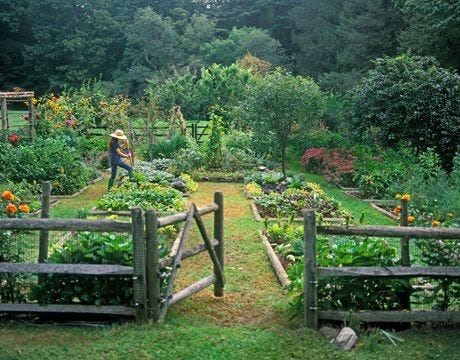
However, the person most likely to take an interest in homesteading in 2025 is a woman who very much would like to be thought of as a homesteader, or seen as a homesteader. In other words, the photos and the creative content are the main draw. The aesthetic of idealized homesteading is appealing. I get it. The aesthetic of homesteading is ideal to me, too.
There is nothing evil about this, but you should probably consider whether or not the actual care of plants and animals appeals to you before you spend too much time dreaming about it. Can you keep a simple houseplant alive and thriving year-round? Can you tell when someone’s dog or cat is ill? Can you tell a well-bred animal with good lines from a weak or genetically inferior animal? Do you enjoy looking at living things with a critical eye, and would you find yourself at peace if you needed to cull a herd, remove weaklings, and reorient your breeding program around only the strongest of your animals?
Homesteading is mostly science, and in particular a lot of noticing and taking notes at regular intervals throughout the year. It’s solving an endless parade of problems that arise to impede you from living in that ideal aesthetic in your mind. Did you enjoy labs in science class? Did you keep meticulous records? Animal husbandry and agriculture reward people who are careful students of living things: they notice when plants and animals are thriving; and they are good at noting and memorizing the variables at play when they observe favorable conditions for life. They also notice when living things take the first few steps towards illness or failure to thrive.
The beautiful aesthetic of homesteading, farming, or ranching is the weary laborer’s reward for faithfully, competently noticing and tending her world. It is indeed very desirable, but it isn’t something one simply arrives at with the purchase of land or animals. In reality homesteading involves a lot of years of chaos, disorder, ugliness, and death before competence begins to deliver on its promise. If you are interested in homesteading only because of how it looks or feels online, do not proceed unless you have enough money to pay actual farmers to do it for you on land you already own.
If, however, you notice in yourself a genuine delight in the fickle nature of living things, and you find yourself keeping track of what lead to their thriving or their failure, perhaps you would enjoy homesteading. If you are hardy enough to endure the ugliness of failure and death for the sake of a better-informed try at success next time around, then you should save up, buy some land, build some fences and structures, and try homesteading.
But “the economy” is never going to just supply this for you. You will have to give up some things and prioritize this path. You will have to be creative.
I find homesteading to be a lot like writing, actually. People who are writers will just write, no matter what. They aren’t waiting for a writing job. (spoiler alert: oh, never mind…). They write because writing is how they make sense of the world, and most of all because writing enables them to endure living with themselves. Animal husbandry and farming are similar compulsions. Should you homestead? I don’t know, are you currently keeping animals illegally in your apartment? Are you brewing weird alcohols as we speak in your bathtub?
The reason to go ahead and give in to your homesteading dream is because you can’t keep yourself from doing it, anyway. You’ve already got ducks in a box on the floor of your kitchen with nowhere to go, and you’re contemplating kicking your roommate out because you need more room for your plants. The economy isn’t keeping you from homesteading, any more than the economy keeps real writers from writing.
If you must, you must.




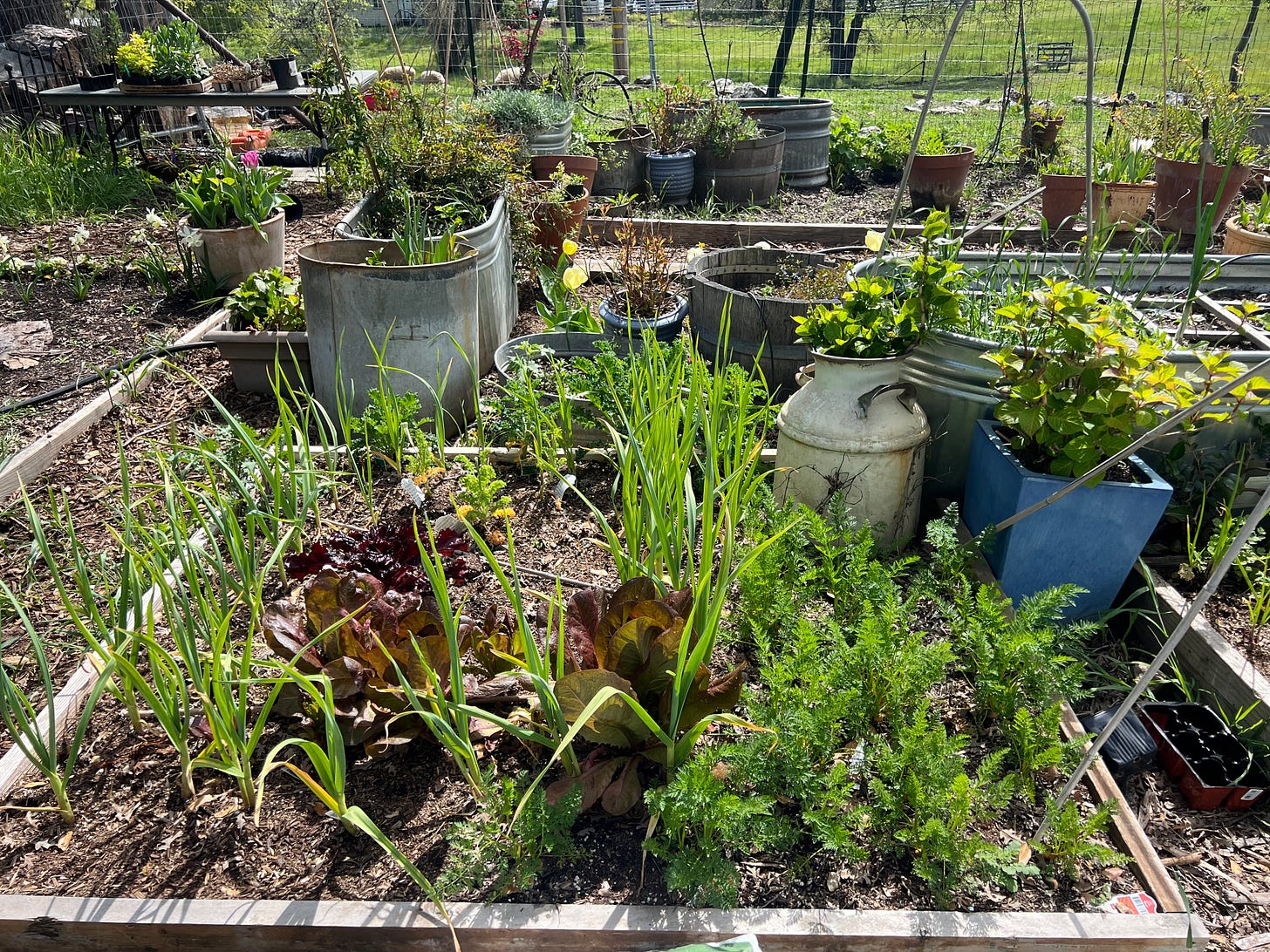
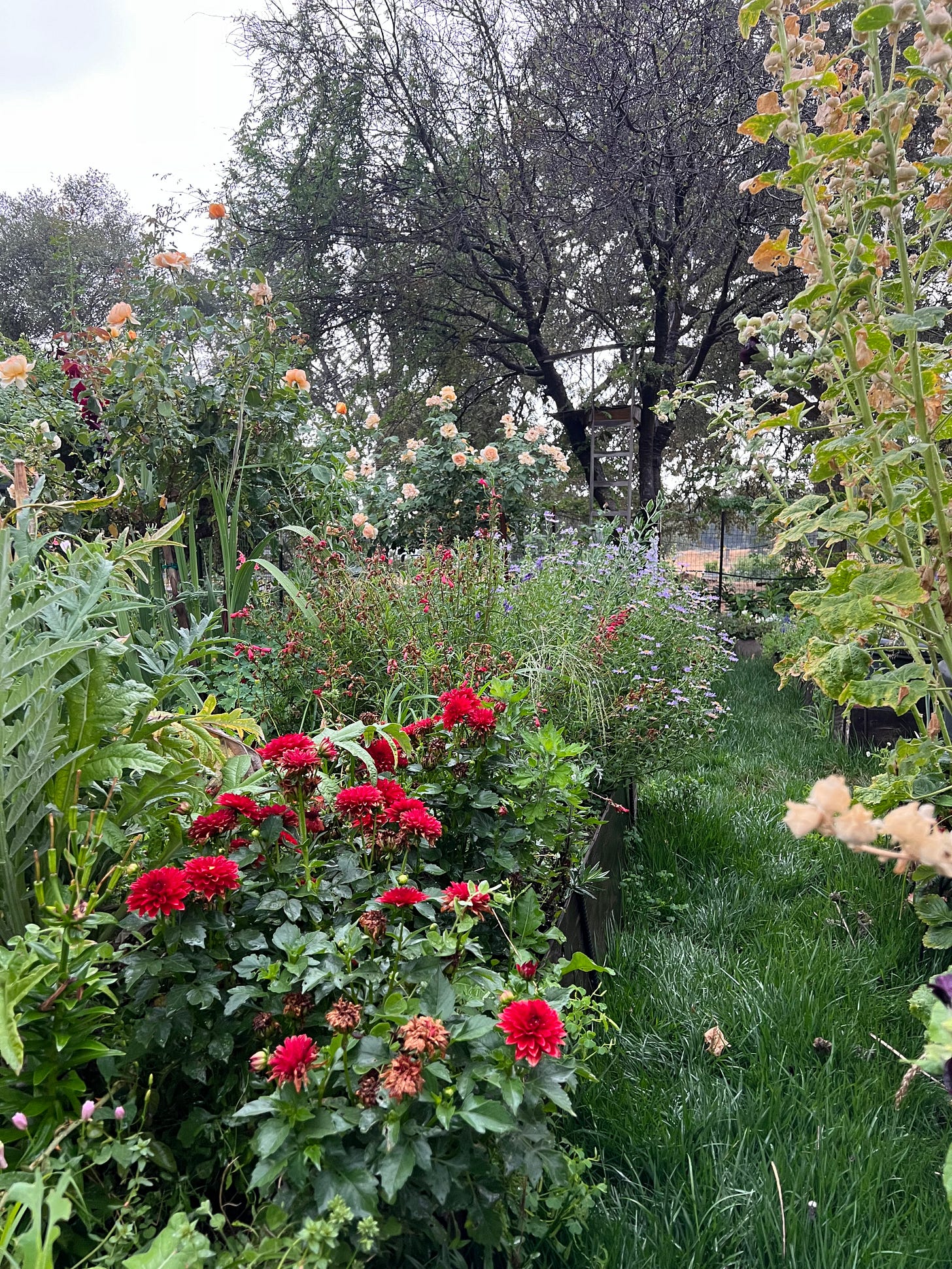
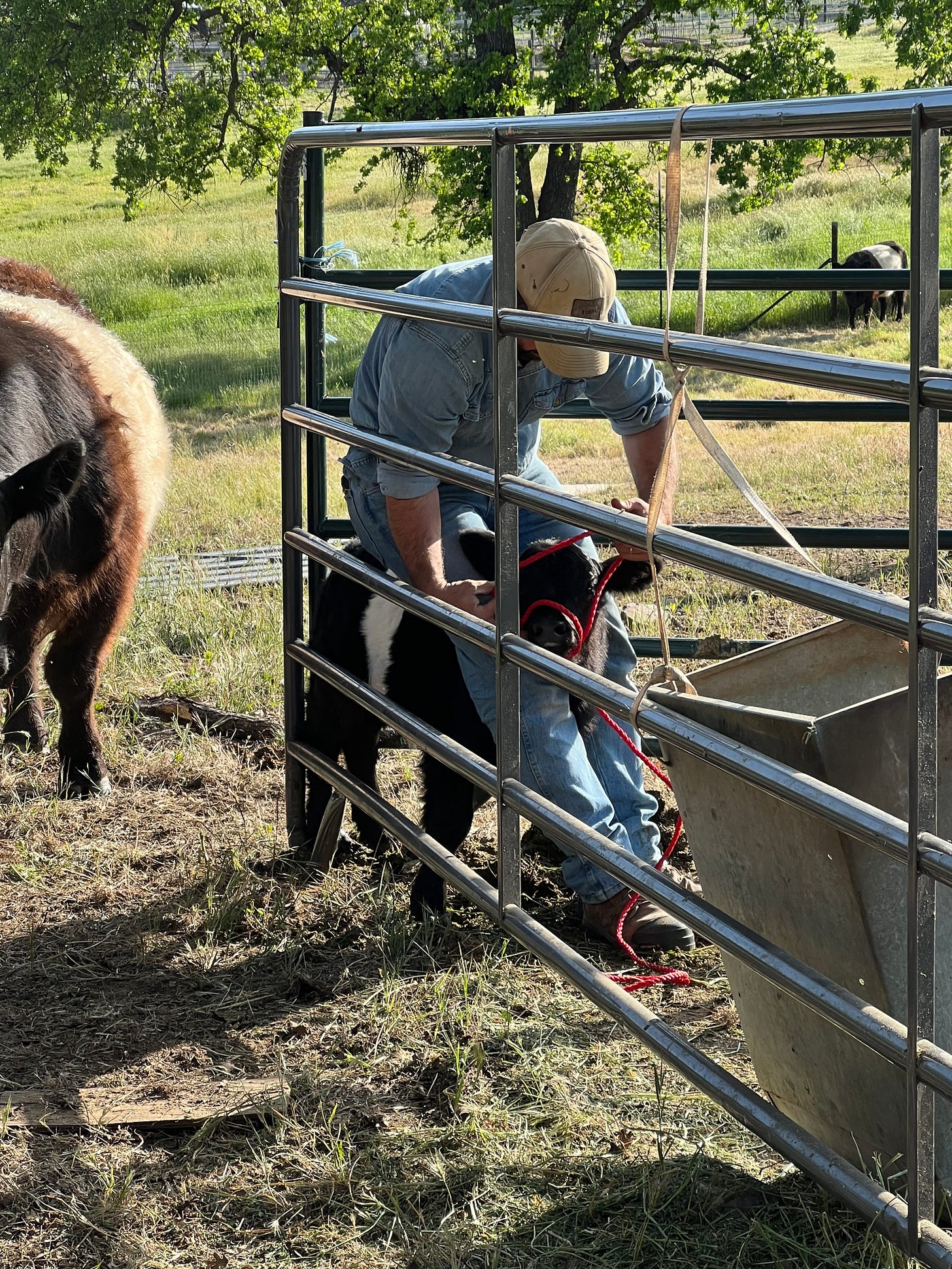

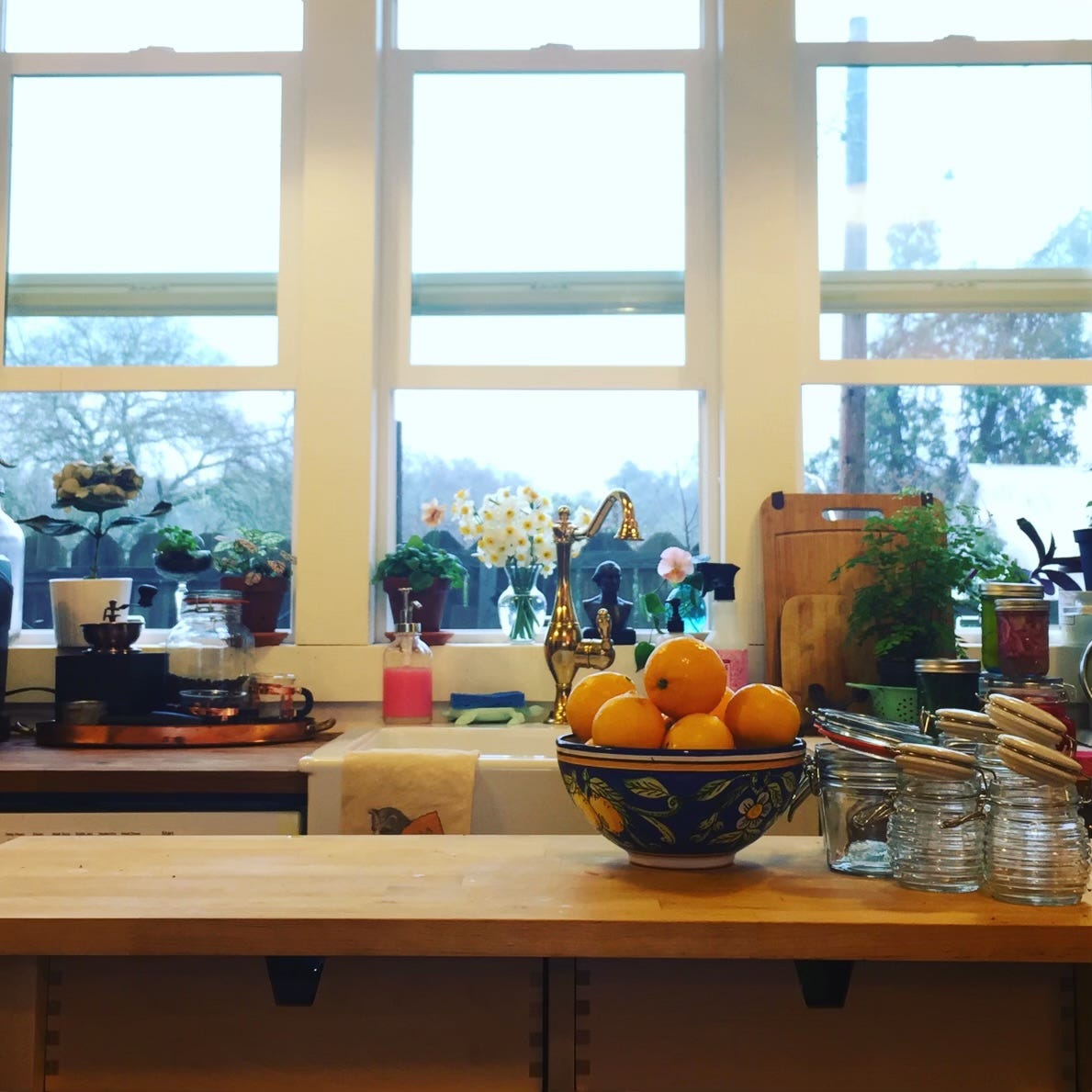
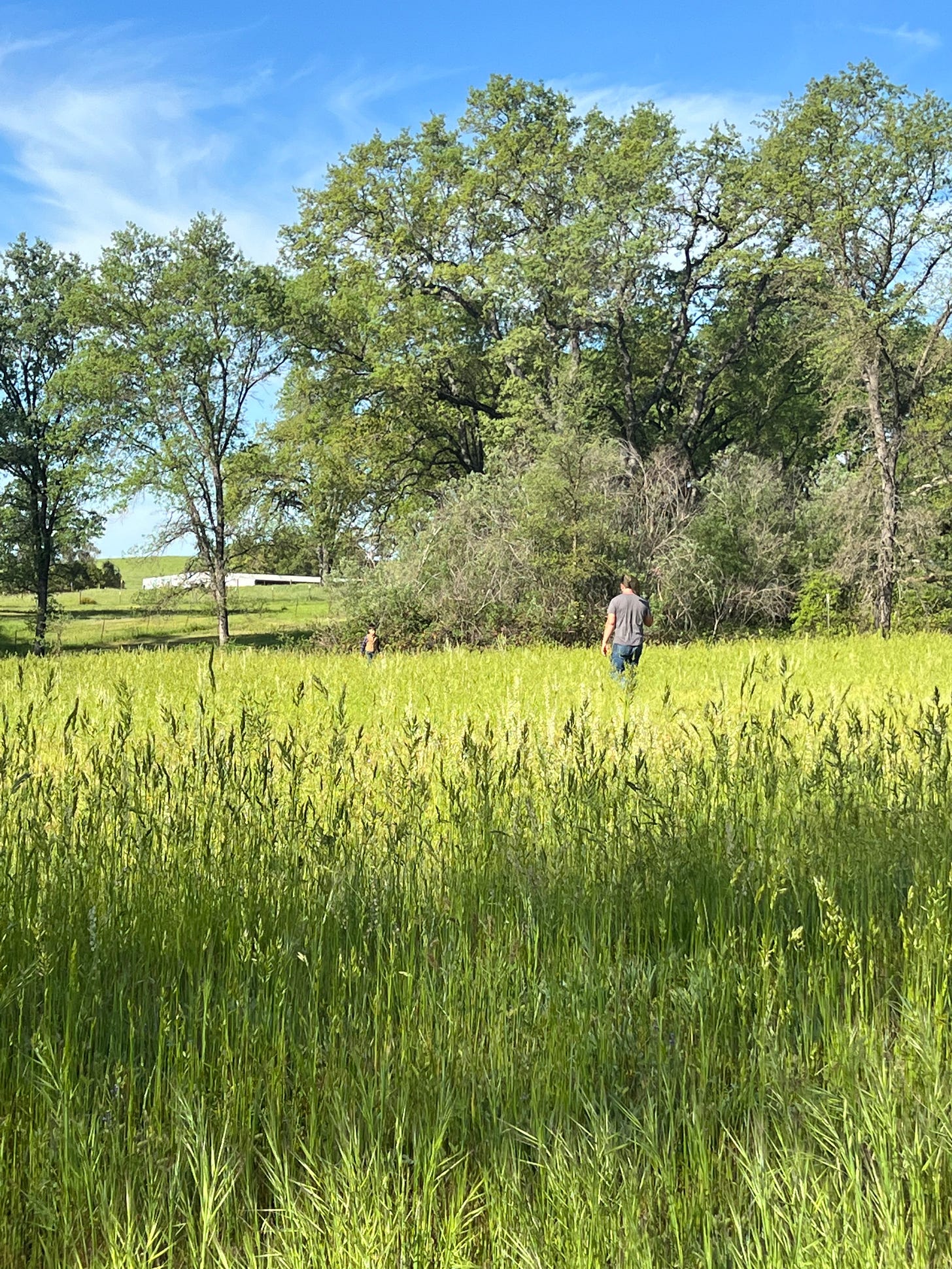
As someone who grew up on an actual organic farm and did 4-H...*thank you*, " If you are interested in homesteading only because of how it looks or feels online, do not proceed unless you have enough money to pay actual farmers to do it for you on land you already own."
My parents didn't homestead, but my mom farmed and still has a huge garden and orchard.
Wanna "homestead"? Ok. Iowa farmland starts at about $11k/acre.
Farm work (not a gentleman's farm or owning 5 chickens) is dirty, hard, unpredictable work. As you said, it is really a lot of science and endless problem solving (farm equipment broke, local shop doesn't have the part, extra grasshoppers this year eating crops, no rain in August and corn is dry, etc, etc).
Fresh eggs, fresh vegetables and fruits, from-the-cow raw milk are the result of 5:30am wakeups in rain, sleet, or snow. It is more Carhartt overalls that smell like 💩 than milkmaid dresses.
I am typing this from my parent's farm, and it is beautiful here, and a wonderful break from Paris. But, good lord, farming is hard work.
My parents homesteaded before it was cool. Back in the 90s. Moved back to the Central Valley after my dad left the army. They leased the 3 acres of almonds then planted a giant garden, fruit orchard and 30 chickens. It was a fun childhood. But we eventually moved to a small town when my dad’s seizure disorder and working full time were too much. But, as you describe here, my parents love growing and caring for things so they still do that on a small scale in town, as do I. If you can’t afford acres and you still have to work full time, you can make your subdivision home a mini homestead. No one is forcing you to keep the lawn (well maybe the HOA but not in the back yard!)Turn that sucker into a plot of raised beds! You dont even have to post about it on instagram 😆 you can just plant peach trees in the front yard and give your neighbors bags of cherry tomatoes and eat way too much zucchini in the summer.